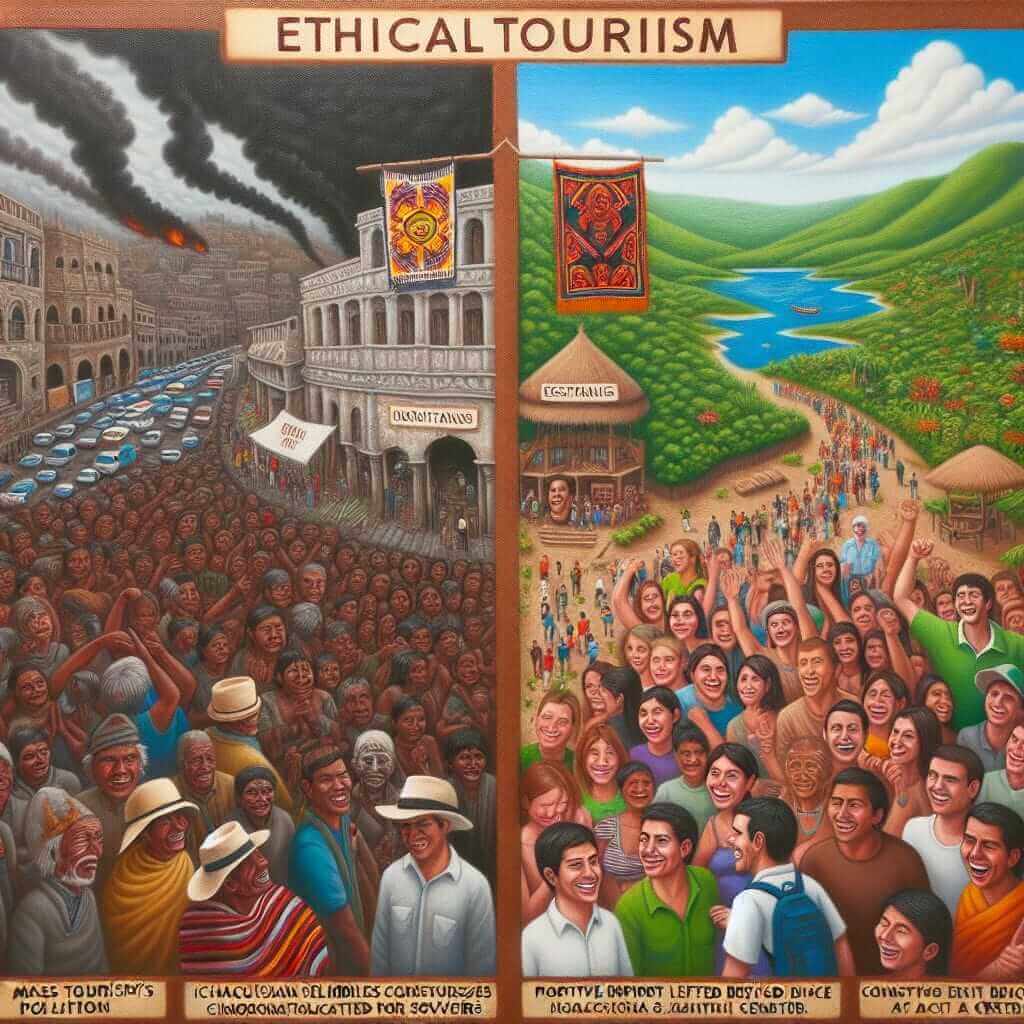Ethical tourism is a hot topic these days, and rightfully so! It regularly appears in IELTS Writing Task 2, indicating its global significance. This essay type often asks you to discuss the pros and cons of ethical tourism or analyse its impact on various stakeholders.
Let’s delve into some potential IELTS Writing Task 2 questions on this theme:
- To what extent do you agree or disagree that ethical tourism is crucial for the sustainable development of the travel industry?
- Some people believe that ethical tourism restricts travel choices and increases costs. Others argue that it is essential for preserving cultures and protecting the environment. Discuss both views and give your opinion.
- What are the benefits and drawbacks of promoting ethical tourism practices worldwide?
Dissecting and Answering an IELTS Question
Let’s break down question number 2:
Question:
Some people believe that ethical tourism restricts travel choices and increases costs. Others argue that it is essential for preserving cultures and protecting the environment. Discuss both views and give your opinion.
Analysis:
This is a classic “discuss both views and give your opinion” essay. You need to present a balanced analysis of both perspectives before stating your stance.
Model Essay:
It is argued by some that ethical tourism, while noble in its intention, limits travel options and inflates prices, thereby hindering the overall enjoyment of travel. Others contend that it is a necessary step towards safeguarding cultural heritage and environmental integrity. This essay will delve into both viewpoints before presenting a concluding opinion.
On one hand, detractors of ethical tourism raise valid concerns regarding its potential to restrict choices. For example, adhering to strict ethical guidelines might mean tourists are limited to staying in eco-friendly accommodations, which are often less numerous and pricier than conventional options. This can be particularly burdensome for budget travellers, potentially deterring them from exploring the world. Furthermore, some argue that the pursuit of ethical travel experiences can be overly sanitised, depriving tourists of authentic cultural immersion.
On the other hand, proponents of ethical tourism emphasise its pivotal role in preserving cultural diversity and environmental sustainability. They argue that mass tourism often leads to the commodification of local cultures, where traditions are reduced to mere performances for tourists, leading to cultural erosion. Ethical tourism, however, encourages respectful engagement with local communities, fostering cross-cultural understanding while providing economic benefits that empower locals. Additionally, it promotes responsible environmental practices, such as minimising waste and reducing carbon footprint, thereby mitigating the detrimental impacts of mass tourism on fragile ecosystems.

In conclusion, while acknowledging the potential drawbacks of ethical tourism, such as limited choices and increased costs, I firmly believe that its long-term benefits for cultural preservation and environmental sustainability far outweigh its limitations. By promoting responsible travel choices, we can ensure that future generations can continue to enjoy the beauty and diversity of our planet. (Word count: 288)
Writing Tips:
- Structure: Follow a clear structure: introduction, body paragraph 1 (opposing view), body paragraph 2 (supporting view), and conclusion.
- Vocabulary: Use topic-specific vocabulary like “eco-friendly accommodations,” “cultural erosion,” “responsible environmental practices.”
- Grammar: Focus on using complex sentence structures and a range of grammatical structures correctly.
Vocabulary:
- Detractors (noun) – /dɪˈtræktərz/: Critics or opponents
- Burdensome (adjective) – /ˈbɜːrdənsəm/: Difficult to bear or deal with
- Sanitised (adjective) – /ˈsænɪtaɪzd/: Made free from objectionable content; overly controlled
- Commodification (noun) – /kəˌmɒdɪfɪˈkeɪʃən/: The action or process of treating something as a mere commodity
- Erosion (noun) – /ɪˈrəʊʒən/: The gradual destruction or wearing away of something
Conclusion
Ethical tourism is a multi-faceted issue that requires careful consideration. By understanding the arguments surrounding this topic, you can formulate a well-structured and insightful response in your IELTS Writing Task 2. Remember to use specific vocabulary, demonstrate grammatical range, and above all, present a clear and coherent argument. Good luck with your IELTS preparation!